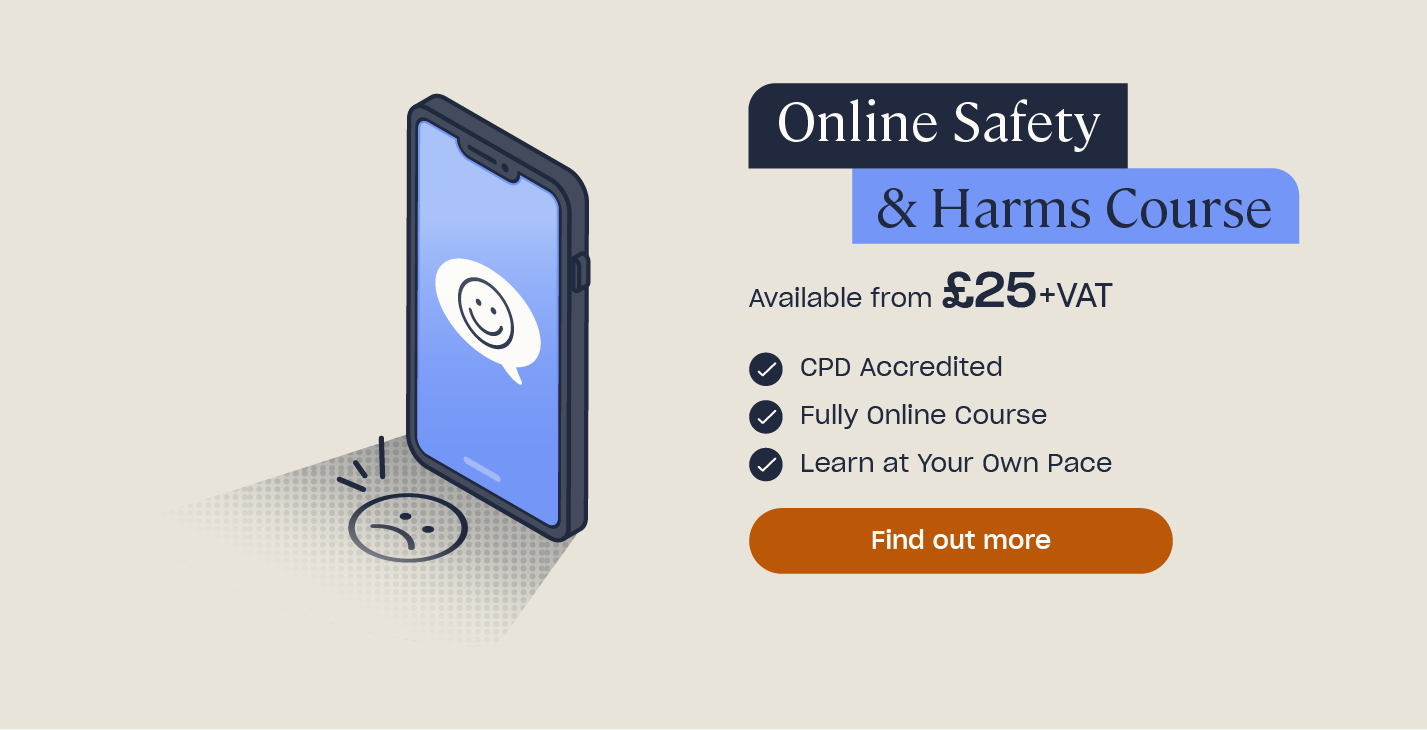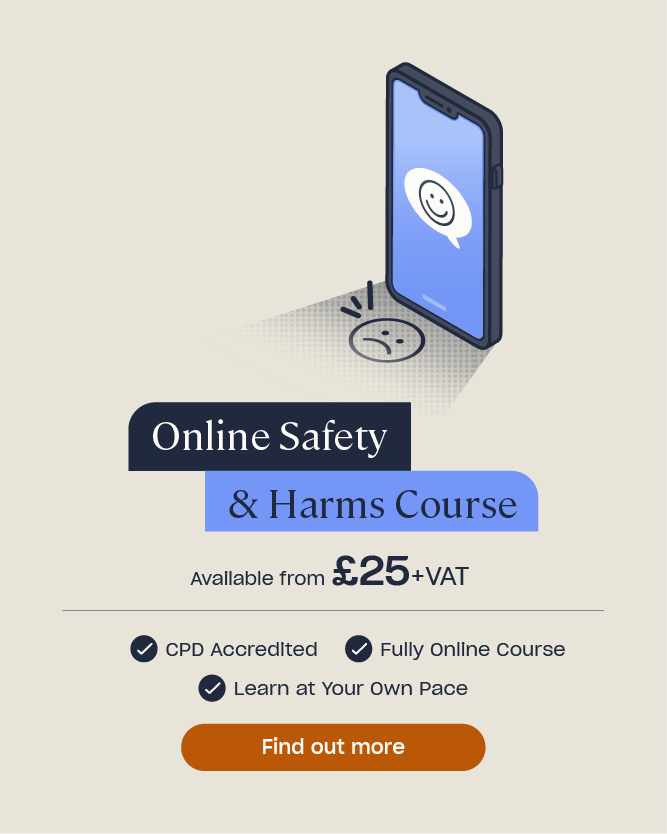Internet Gaming Safety: Tips for Parents
Online gaming is one of the fastest growing markets in the entertainment industry, with the number of people participating in internet gaming and the revenue generated by the sector increasing rapidly each year. Currently, at the start of 2024, there are approximately 3.32 billion active video gamers worldwide; a figure that has risen by over 1 billion in only eight years.
But with this rise in popularity also comes an increasingly pressing conversation around the safety risks involved in gaming online, particularly as almost a quarter of online gamers are under the age of 18.
In this article, we will explain what online gaming is, explain some of the risks involved in internet gaming as well as the potential benefits for young people, and provide advice for parents or carers on how to keep children safe whilst playing online.

What is Online Gaming?
An online game is one which is partially or primarily played via the internet, and often offers online interactions with other players. These can be played on a variety of platforms such as a PC, games console (for example, Playstation, Xbox, Wii, Nintendo Switch) or mobile devices.
Whilst there are countless options of online games available to play, some are particularly popular and are well-known amongst the wider public as well as within gaming communities. Examples of some of the most popular internet games include:
- Fortnite.
- Among Us.
- Rocket League.
- Roblox.
- Minecraft.
- The Sims.
The popularity of online games has been rising since its introduction in the 1990’s with the release of widespread internet access making online gaming possible. The industry has seen extraordinary expansion in the last 5 years however as many people took up online gaming during the COVID-19 pandemic to escape boredom and isolation during the lockdowns.
What are the Risks of Online Gaming?
With online gaming becoming an increasingly popular pastime amongst children and young adults, it’s important for parents and educators to keep in mind that there are some undeniable risks associated with internet gaming that are important to consider.
With the right guidance, however, children and their parents can be aware of these potential dangers and take the necessary steps to help avoid them. You can test your current knowledge of online safeguarding concerns with our Online Safety and Harms Quiz.

A few of the main risks that you should be aware of, are:
Online game addiction
Whilst it’s common for many parents to think their child spends too much time in the online world, online gaming can become a legitimate addiction. The World Health Organisation (WHO) has now added ‘gaming’ into their list of ‘disorders due to addictive behaviours’ along with other addictive substances and activities such as drugs, alcohol and gambling.
As with any hobby, those that enjoy online gaming will do so enthusiastically and therefore may desire to play for longer or more frequently to prolong this sense of joy. But how can you know whether this surpasses a ‘normal’ or healthy level?
Some key signs that a child’s gaming may have become more than just a hobby are:
- They feel regularly exhausted and disengaged.
- They are unable to concentrate.
- They prioritise internet gaming over essential activities such as eating or sleeping.
- They only socialise online and find ‘in-person’ interactions difficult and unenjoyable.
- They no longer participate in other interests.
These behaviours can lead a child or young person to develop negative emotions such as anger, anxiety, or depression.
Cyber Bullying
Cyberbullying within online gaming refers to the act of intentionally harassing, intimidating, or threatening other players within the gaming community.
For many young people, the anonymity of online gaming and its separation from the ‘real world’ is comforting. It can be liberating to escape into a space where your circumstances and past are largely unknown.

This anonymity can also be dangerous, however. As with any form of cyberbullying, some players can take advantage of being able to hide behind a screen to bully others online with the sense that they’re unable to be caught if their identity is unknown.
Although cyberbullying can take many forms, there are some actions which are specific to online gaming. These include “whispering”, where cyber bullies target players with harmful messages either directly or in public chat channels. Sadly, there are even some people, known as “griefers”, who play online games specifically with the intent to ruin the experience for other people, finding satisfaction in harassing other players and using aspects of the game in unintended ways to prevent their progress. To learn more about cyberbullying and how to prevent or report it, read our article on why cyberbullying is harmful.
Malware and Viruses
Often, online games contain paid content, or you have to purchase the game itself to play. For children, it can be tempting to avoid these costs by trying to find free or cheaper versions of the game online via cheat codes or third-party sellers. This is risky, however, as these unofficial versions are often infected with viruses or malware that, when downloaded, can damage your computer or impact your privacy. Once malware is on your device, hackers are able to steal your personal information.
Additionally, hackers may access your personal information through phishing scams. They may create fake login pages for games or send phishing emails that can trick a child into entering their account information, which the hackers can then use to gain access to your account and personal details.
In-game purchases
An increasingly common way for developers to fund their game creations is to offer the base game for free, but then charge for in-game content such as characters or items. These are designed to make players want to continue playing the game but requiring payments to enable them to do so. Whilst these charges may individually be small, they can quickly add up and a child may not be fully aware of the costs they’re accruing. Recent reports show that almost half of parents of children aged 12 to 15 who play online games are worried about the pressure on children to make in-game purchases. This has increased from just four in 10 the previous year.

Talking to Strangers
Similarly to the risk of cyber-bullying, the social aspect of online gaming can put children at risk of forming damaging relationships online. Many games are designed to be played in teams or against other people and thus children can be playing and communicating with players from many different locations, ages, and backgrounds. Linked to online gaming, other platforms such as Discord or Reddit also provide the opportunity to find and speak to other players with similar interests. The anonymity behind an online presence, however, means that children could be at risk of grooming, online abuse, or forming relationships with people who could have ill intent.
Want to Learn How to Keep Children Safe Online?
Our Online Safety and Harms course teaches you everything you need to know about the potential online risks and harms children face, how to recognise signs that might indicate online harm or abuse, and how to effectively address online safety.
Benefits of Online Gaming
Although the risks of internet gaming are important, they can be managed effectively to help ensure a child can enjoy their online play safely. In fact, if safety risks are controlled, there are many benefits of online gaming that can have a positive impact on children.
Some of these many benefits are listed below.
Developing Brain Capacity and Thinking Skills
There are many online games which contain educational elements that can help support a child’s development and intellect. Some games, such as Times Table Rockstars, are even used within schools as a learning aid as they offer a more engaging form of teaching for younger children than traditional methods.
Furthermore, online games can enhance a child’s memory, brain speed and concentration. Many internet games involve elements of problem solving and multitasking which help the brain process information quicker, improves attention to detail, and speeds up reaction times.

Helping to Manage Emotions
A popular format for online games is to move through different levels, which increase in difficulty, or win awards by completing specific tasks and overcoming obstacles. Often, players may find themselves having to repeat the same action multiple times, learning from past mistakes in order to succeed. The process of playing games with this format teaches children how to deal with setbacks and persevere towards a goal despite disappointment, helping to develop beneficial personal skills such as resilience and patience.
Building Social Skills
When playing with trusted peers, multiplayer online games are greatly effective at helping children to nurture relationships and build vital social skills. Online gaming creates shared moments and victories, as well as building teamwork skills, that can help bring existing friendships closer and build new social bonds. Furthermore, the shared collaborative experience of gaming enables children to learn from each other and build personal confidence.
Promoting Healthy Competition
For children who may not be interested in other typical avenues of competition, such as sports, online gaming can be an equally successful way to gain the benefits of healthy competition amongst children. As online games are often played against each other, they offer a great way to allow children to express competitive urges.
Competition is healthy for children, providing a powerful motivator to work hard and succeed, as well as directing children to admire skill, talent and expertise.

Sparking Creativity
Online games are highly visual, often involving imaginary worlds which are based in fantasy or science fiction. For children, immersing themselves in these imaginary environments can help to spark their own creativity and inspire ideas of their own. Many internet games also promote creativity directly as they often involve designing your own characters or environments. For example, the popular online game The Sims is entirely based around building your own characters and houses and choosing how they develop through ‘life’, including choosing careers, relationships, and hobbies for your Sims.
There are many different reasons why children enjoy online gaming, but the most common reasons are that it provides an opportunity to stay engaged with their friends, eases boredom, allows an escape from the uncertainty of the real world, and provides feelings of success or achievement when they ‘win’ or level-up within a game. For all of these reasons, online gaming can provide a fun, sociable, and mentally stimulating outlet for children and young people.
Online Gaming Advice for Parents
For many parents, online gaming is something that they haven’t experienced or grown up with themself, and thus there are understandably many suspicions and concerns surrounding children spending time playing online. In fact, a recent survey commissioned by the NSPCC revealed that two in five parents say they are worried about digital devices or technology negatively affecting their children’s physical or mental health.
To ease these concerns, there are many steps that parents can take to monitor their child’s internet gaming activity and ensure they’re able to play safely online.
Take an Active Interest
The more parents know about the online games that their child likes to play, the better equipped they are to identify potential risks and set boundaries. What’s more, as with any other hobby, taking an active interest in your child’s favourite online games will help them to feel more close and connected to you and help deepen your understanding of them. Our Parent’s Guide to Social Media helps you to learn more about the online spaces that are most popular amongst children and young people today.

Find Out Who They Play With Online
As a parent, you wouldn’t let your child meet up and socialise in-person with people without knowing who they are, and the same should apply with online socialisation. Ask your child who they play games with online and talk about what kind of topics are discussed and what language is used during play. Furthermore, it’s important to ensure your child knows how to report abusive or anti-social behaviour online so that they’re equipped to protect themself against cyber-bullying in gaming and don’t fall victim to inappropriate behaviour from other players.
Use Aeroplane Mode to Avoid Accidental Purchases
Some online games, once downloaded, can be played without being connected to the internet. For younger children, it may be a good idea to turn on ‘aeroplane mode’ on the device on which the game will be played. This prevents children from being able to make any purchases online or connect to online chat functions, which enables them to experience the joy of gaming without being vulnerable to some of the principal risks associated with playing online.
Use Ratings to Choose Age-Appropriate Games
All games come with a suggested age rating which gives parents a good idea of whether the content included in the game is suitable for the player. Most games will have a PEGI (Pan-European Game Information) rating, which will be displayed as one of the following:
- PEGI 3 – suitable for all ages.
- PEGI 7 – suitable for young children.
- PEGI 12 – suitable for children 12 and over.
- PEG 16 – suitable for children 16 and over.
- PEGI 18 – Only suitable for adults.

Alternatively, if a game is purchased from the App Store or Google Play store, they will contain a similar form of rating stating which age the game is suitable to play from (for example, 9+, 12+ or 17+).
These age ratings give parents a good guide as to which games they should or shouldn’t purchase for their child, as well as providing peace of mind that the content their child is consuming is safe and suitable.
Agree Digital Boundaries
Studies have shown that video game addiction leads to changes in the brain that are similar to those that occur in substance addiction and gambling. Therefore, it’s important for parents to agree boundaries with their child around how long they’re allowed to play online for and who they’re able to play with.
Having an open conversation about the risks of spending too much time online and reminding children that people can hide behind fake profiles and may not be who they say they are will help them to understand the reason behind having set boundaries. It may also increase their acceptance of these limitations. To learn more, read our article about how to explain internet safety to children.
Encourage Critical Thinking
One of the best ways to help protect your children from the risks of online gaming is to equip them with the knowledge and skills needed to keep themselves safe. Teaching children how to protect themselves online, such as reminding them not to share any personal information and how to identify a potential scam, will enable parents to give their child more freedom to enjoy online gaming independently without having to constantly worry about the dangers.

Online Gaming is becoming an increasingly popular pastime for children and young people, so it’s important for parents to have the knowledge needed to protect their child from the risks associated with playing online. Whilst internet gaming may leave children vulnerable to dangers such as online scams, cyber-bullying and addiction, these can be effectively managed with the right knowledge and input from parents. Whilst these risks can often create bias against online gaming, it’s important to remember that there are myriad of benefits associated with internet gaming too which can have vastly positive effects on children’s confidence, brain power and socialisation.
Further Resources:
- Online Safety and Harms Quiz
- Parents’ Guides to Social Media Apps
- How to Explain Internet Safety to a Child
- Screen Time for Children: Advice for Parents
- Online Safety & Harms Course











